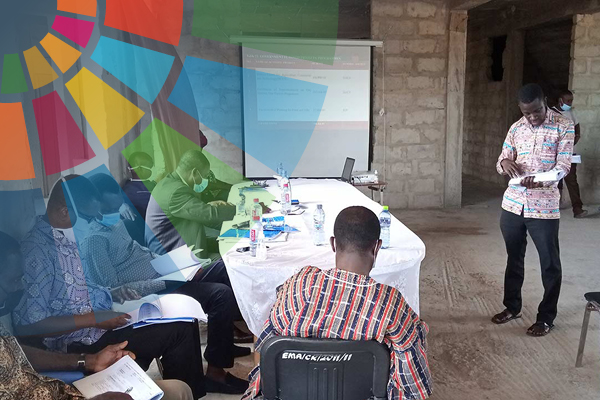On July 28, local governments were given center stage at the United Nations Food Systems Pre-Summit dialogues to discuss how to tackle food insecurity and nutrition. This reflects the growing prominence of local governments in civic life around the world—the outcome of processes of decentralization unfolding globally since the early 1990s. Decentralization involves the transfer of certain administrative functions, fiscal responsibilities, and/or political autonomy to local governments. Devolution is the most ambitious type of decentralization reform because it involves the transfer of key responsibilities to local authorities that are elected rather than appointed. Many scholars see it as a potential way to enhance accountability to local communities, tailor goods and services to citizen preferences, and mitigate geographically-concentrated ethnic or religious tensions. From Kenya to Pakistan, and from Zimbabwe to Nepal, many countries have altered their constitutions in recent years to pursue devolution.
What are the impacts of such reforms on agricultural extension services, which are crucial for supporting farming and facilitating food system transformation? A recent article in The European Journal of Development Research examined this issue in Ghana, revealing an important paradox: While devolution enhanced political accountability, it undermined agricultural service provision, as extension expenditures fell during the post-devolution period.
In 2009, Ghana’s parliament passed a Local Government Instrument that devolved responsibility for certain functions, including agricultural extension, public works, and social welfare, from the central ministries to the country’s Metropolitan, Municipal, and District Assemblies (MMDAs). By 2012, implementation of the devolution process began with a composite budgeting system: Devolved functions were incorporated into the MMDAs’ budgets and placed under the control of elected MMDA officials rather than earmarked and allocated through sectoral ministries. In addition, approximately 33,000 staff were transferred from the central government civil service to a newly established Local Government Services Secretariat. From that point on, directors of agriculture and their staffs were accountable to the MMDAs rather than to the Ministry of Food and Agriculture.
The article’s analysis focuses predominantly on how these budgeting changes and shifts in reporting lines for civil servants affected agricultural extension services. The study relied on an original survey of 960 households, structured interviews with 80 of the MMDAs’ directors of agriculture, and district-level budget data from 2012-2016.
One key finding: Government agriculture spending shrank significantly post-devolution, losing ground to other, more politically salient priorities. Median agriculture expenditures fell 36% across Ghana’s 216 MMDAs in the five years after the reforms, even as median expenditures on public works increased by 24% during the same period.*
The directors of agriculture confirmed that they received fewer resources for extension services after devolution than prior to the reforms, with 65% of directors saying they could not negotiate for sufficient resources during the composite budget planning process. One of the most common reasons given was that MMDA politicians who vote on the budget allocations prioritize investments in physical projects such as roads, school blocks, and health compounds over less visible services such as agricultural extension that are directly relevant to a smaller share of the community.
The household survey largely confirmed this pattern. Indeed, among both farmers and non-farmers, investments that fall under the public works mandate were favored by 36% of households, compared with only 2.3% prioritizing agricultural extension services. At the same time, 80% of respondents indicated that they had voted in the 2015 local elections and almost 90% claimed they would vote out their assembly representative if they did not deliver on campaign promises. A majority also indicated that they would first contact their elected assembly member over any other actor when faced with failing services in their community.
Collectively, these results suggest that local communities appreciate that devolution enables them to hold their local assembly members accountable through elections. In other words, citizen priorities reflected sectoral budgeting patterns and because devolution reinforced local government accountability, politicians were motivated in the budgeting process to favor those goods and services that citizens want most. This often disadvantaged agriculture services vis-à-vis other sectors.
One caveat is that the study focused only on a limited period—five years—after Ghana’s devolution process. Nonetheless, it affirms similar findings from studies conducted in Pakistan, Kenya, and Uganda. In addition, it offers some useful policy implications. First, national agriculture development strategies and spending targets, such as the 10% spending target for agriculture under the African Union’s Comprehensive African Agriculture Development Plan (CAADP), should take account of parallel public sector reform processes, such as devolution, that can affect the viability of meeting such targets on the ground. Second, low levels of own-source revenue within most of Ghana’s MMDAs exacerbated sectoral spending trade-offs; especially given steep declines in sub-national revenue in the wake of COVID-19, this emphasizes the need to diversify sources of local government financing for devolution to work effectively.
In sum, the study suggests that while there are benefits to devolution, resulting funding shortfalls for agricultural extension services are a potential obstacle to food system transformation efforts. Locally-elected governments play an important role in meeting agriculture and food system goals—including those being discussed at the UNFSS—yet the success of such efforts requires proper financing, which in turn depends on a strong mandate from their constituents. The apparently low political priority that local constituents place on extension services may pose serious problems going forward.
Danielle Resnick is a Senior Research Fellow with IFPRI’s Development Strategy and Governance Division and leads IFPRI’s Governance theme; she also leads the cluster of research on Political Economy and Policy Processes under the IFPRI-led CGIAR Research Program on Policies, Institutions, and Markets (PIM) Flagship 2: Economywide Factors Affecting Agricultural Growth and Rural Transformation. This post also appears on the PIM blog.
Support for this work was provided by the U.S. Agency for International Development (USAID) through IFPRI’s Ghana Strategy Support Program and through the Feed the Future Innovation Lab Food Security Project; and by the IFPRI-led CGIAR Research Program on Policies, Institutions, and Markets (PIM).
*At the time of fieldwork, Ghana had 216 MMDAs. Since then, the number has increased to 254.







